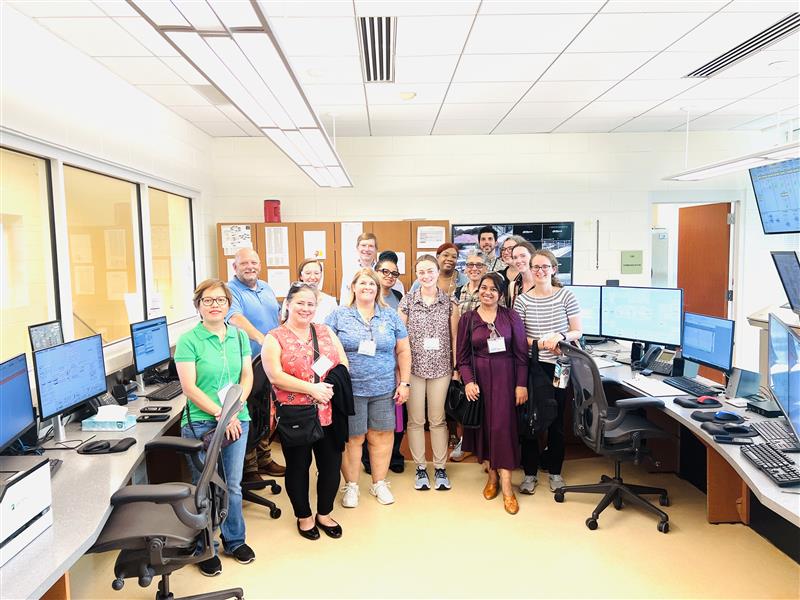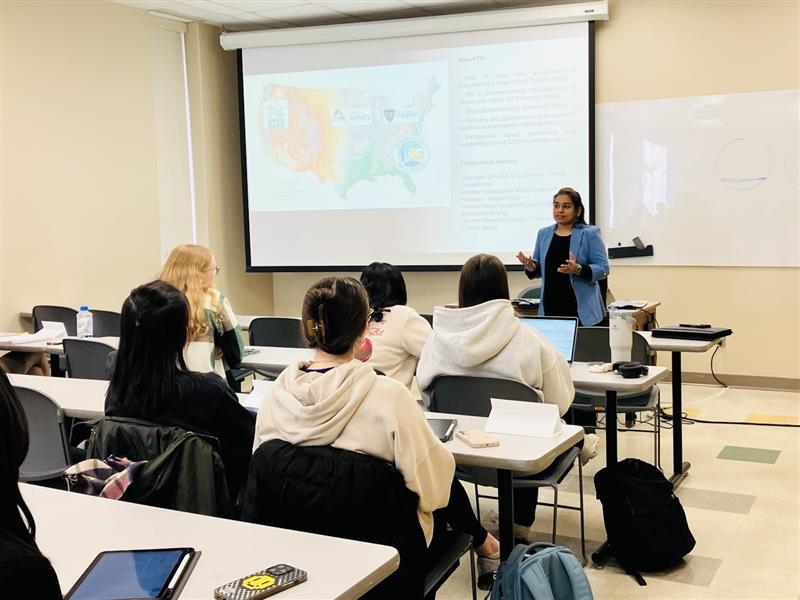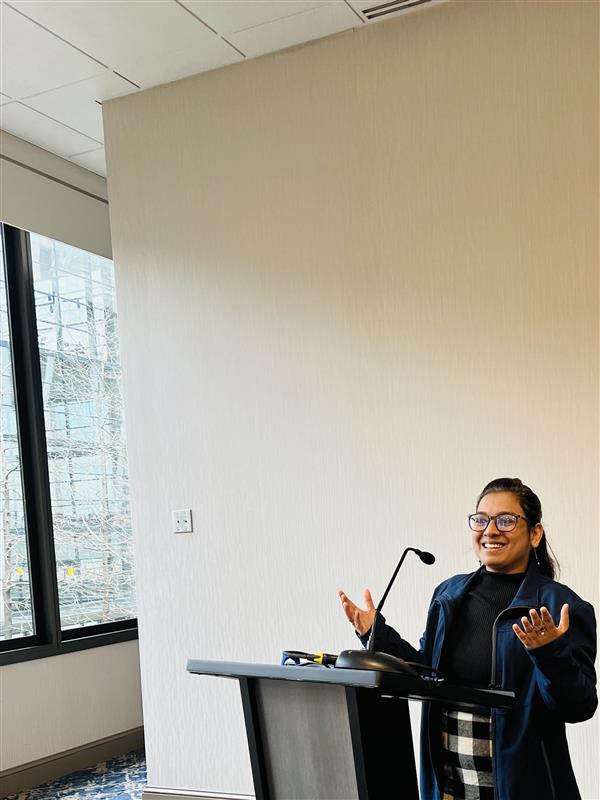We recently connected with Dr. Parul Baranwal and have shared our conversation below.
Dr. Parul, appreciate you joining us today. We’d love to hear the backstory behind a risk you’ve taken – whether big or small, walk us through what it was like and how it ultimately turned out.
There’s a saying that the biggest rewards often come from the biggest risks. For me, one of the most defining risks of my life was leaving everything familiar; my home, my family, my culture to pursue higher education in the United States. It might sound like a common tale of ambition, but for someone like me, it was anything but typical.
I was born and raised in Gorakhpur, Uttar Pradesh, India where most girls were expected to marry young and stay close to home. Opportunities for higher education especially in fields like science were rare, and societal support for such pursuits was even rarer. I was often reminded that stepping out of these expectations was not only risky, but possibly foolish. When I received my PhD offers from United States, my relatives warned me that it could be a scam. “What if it’s a trap and you never come back?” they said. I was terrified. And I was young. But I was also bold.
And then there were those marriage proposals: nice, “safe” options that came with expectations to settle down and give up my ambitions. But I chose differently. I chose to bet on myself.
I researched, cross-checked every small details of the offer. I reached out to students on LinkedIn, verified scholarship details, talked to university staff, and other alumni. That diligence reassured me: those opportunities were real. They were mine.
As a first-generation female student, I had no footsteps to follow. But I was driven by something bigger than myself. Coming to the U.S. was just the beginning of a long and often overwhelming journey. The financial pressure, cultural shock, and academic rigor were overwhelming.
During my early PhD days, I worked in salons to support myself while applying for scholarships and pushing through setbacks.
In the final stretch of my PhD, I was navigating dissertation deadlines, multiple failed experiments and job applications, as well as transitions from a leadership role in North Carolina to the State Department in Oregon. Through it all, my husband was my steady support, reminding me of my strength.
That period tested me in every way, but it also taught me resilience. I turned that struggle into purpose; mentoring students from rural and low-income backgrounds, delivering STEM talks, judging science fairs, and showing girls like me that they belong in science and leadership too.
Today, I serve as the Assistant Director of Water and Pollution Control for the City of Ames, Iowa, where I lead critical projects that protect public health and ensure access to clean water. Along the way, I’ve received multiple national and state recognitions. But what I’m proudest of is not the titles or accolades—it’s that I never stopped moving forward, even when the road was steep.
I often think on that scared girl who boarded a plane to a foreign land, uncertain of what lay ahead. She was afraid – but she went anyway. And I carry her spirit everyday as I work to uplift others, especially the young girls in small towns who dare to dream.
This risk wasn’t just about a degree. It was about rewriting a narrative, for myself, for my family, and for the countless others who are still told that their dreams are too big for the place they come from.

Dr. Parul, before we move on to more of these sorts of questions, can you take some time to bring our readers up to speed on you and what you do?
My story begins with my father’s quiet yet powerful act of courage; moving our family from a remote village in Uttar Pradesh to the city so his children could have access to education. That early example of resilience laid the foundation for everything I stand for today: education as a tool not just for personal growth, but for uplifting entire communities.
Nothing about my journey was conventional. I didn’t study math in secondary school, yet I set my sights on engineering at IIT. During my GATE exam preparations, I would spend nights in libraries because I shared a small apartment with four other roommates. I used to return home at midnight or early morning and instead of encouragement, I was met with slurs. My roommates would call me a prostitute. I cried quietly, and then I studied harder. I told myself, “They’ll understand in ten years.” When I went home to visit my parents during the break, they emptied the apartment without informing me, leaving me homeless with exams around the corner. It wasn’t easy to find housing as a North Indian woman alone in the southern part of the country. I had to beg fellow students to let me stay with them. And still, I kept going; sometimes sleeping in class from exhaustion, listening to my professor tell me I would never succeed in my life. But I was determined to challenge myself, to prove that I could succeed in the toughest environments. And it wasn’t easy, getting into engineering at IIT, then receiving three fully funded PhD offers from the U.S. in engineering – a validation of years of grit and resilience.
While I pursuing my PhD at the University of Toledo, where I worked on several high-impact water engineering and infrastructure projects. Throughout my academic journey, I faced many personal and professional rejections, but I kept moving forward. Over time, I began receiving scholarships including national and state-level honors that helped finance my education and build my confidence.
I was offered multiple job opportunities in US after my graduation. Today, I serve as the Assistant Director of the Water and Pollution Control Department at the City of Ames, Iowa. I lead efforts to provide sustainable water solutions, focusing on water access, wastewater management, and public health. I also have a role in mentoring students, especially those from rural, low-income backgrounds, through different non-profit organizations in India, USA and New Mexico.
What sets me apart is not only my expertise in water and environmental engineering but also my drive to uplift marginalized communities- especially women and girls. I’ve dedicated my career to creating educational and professional opportunities through mentoring, workshops, and advocacy.
Through partnerships with organizations like Girlstart, Iowa State University, Freedom Employability Academy, NC One Water, and Seaside Sustainability, I help empower young girls to pursue careers in STEM and public health. I’m honored to be recognized with the 2025 WWETT Young Professional Award, the Google Career Certificate Scholarship, and other prestigious awards; but my greatest pride comes from helping others rise.
My mission is to make clean water accessible to all and to create environments where women and girls can thrive.
Let’s talk about resilience next – do you have a story you can share with us?
I often tell people that I consider myself very fortunate. While I’ve faced many hurdles, my resilience has been the driving force behind my journey. I firmly believe that life is never easy, but it’s how we approach the challenges that truly shapes our path.
One of the most deeply personal and formative experiences of my life happened while I was pursuing my PhD in the United States. I was far from home, adapting to a new culture, and immersed in an intense academic environment. But beneath the surface of coursework and research, I was experiencing one of the most painful chapters of my life – my husband and I went through three miscarriages starting from my final year.
That year was especially brutal. I was finishing my PhD in Ohio; finalizing my thesis, writing and revising papers more than 1500 times with my research committee, redoing experiments that failed over 1000 times, applying for multiple jobs and national competitions, and constantly pushing my physical and emotional limits. And while all of this was happening, we were also preparing to move for new jobs, adding yet another layer of stress and transition.
Through it all, my husband stood by me as my rock. He supported me in the quietest and most powerful ways; comforting me after another failed experiment or another night of grief, encouraging me to believe in myself even when I was too tired to hope. I am incredibly fortunate to have a partner who has always seen my potential, even when I couldn’t. His belief in me helped me go beyond what I thought I was capable of.
There were moments when I wanted to quit, when the grief and exhaustion felt too heavy. I remember sitting alone in our apartment, surrounded by books, failed lab notes, and tears, wondering if I had anything left to give. But in those moments, I would think of my parents; my father’s sacrifices, my mother’s defiance of societal norms and of the girls back in my hometown who still don’t have the chance to choose their future. That thought gave me strength.
So I kept going. I focused on my work, pushed through my personal pain, and continued to give my best every day. In the mid of this hardship, I began to see my hard work pay off. I started winning scholarships, gaining recognition for my research, and ultimately receiving 17 job offers across postdoctoral research, industry and government sectors in the United States after my PhD. It wasn’t just a win on paper…it was the outcome of deep perseverance, shared strength, and relentless belief in the power of education and purpose. That wasn’t just a win for me—it was a message to every girl who’s ever been told she can’t make it: You can, and you will.
Resilience, to me, isn’t just about enduring; it’s about transforming pain into purpose. It’s about choosing hope even when everything feels lost. That chapter of my life taught me that resilience is not loud. It’s not flashy. It’s quiet. It’s steady. It’s crying one minute and showing up the next. It’s sitting in a classroom after a sleepless night and still absorbing every word.
That breaking point became the breakthrough that shaped who I am—and I’ll forever be grateful for the lessons, and for the partner who never stopped believing in me.

Putting training and knowledge aside, what else do you think really matters in terms of succeeding in your field?
In my field whether it’s hydropower, water infrastructure, or water policy, success goes far beyond just knowing the technical details. One of the most important things that’s helped me grow is building strong relationships and staying connected with people across sectors. When I worked on hydropower projects with the State Department of Environmental Quality, collaborating with engineers, ecologists, policymakers, and local communities played a huge role. These connections helped us come up with well-rounded, practical solutions that actually worked on the ground.
Another big part of my work is systems thinking. Everything in this field is connected: engineering decisions impact ecosystems, policies affect communities, and data shapes funding and operations. So it’s important to see the bigger picture, stay flexible, and adjust when regulations change or new data comes in. For example, during policy development discussions, I contributed scientific input on total maximum daily load (TMDL) limits and nutrient management strategies, helping agencies balance environmental goals with economic feasibility.
Also, no matter how technical the project, I’ve learned that communication is key. Whether I was explaining turbidity trends to local residents or presenting modeling results to government officials, translating complex data into simple, relatable language helped build trust. And trust is what brings long-term impact.
Contact Info:
- Instagram: https://www.instagram.com/sparknbright1/profilecard/?igsh=MTIyNmswejZyendqbA==
- Facebook: https://www.facebook.com/share/16M7XkFXCY/?mibextid=wwXIfr



